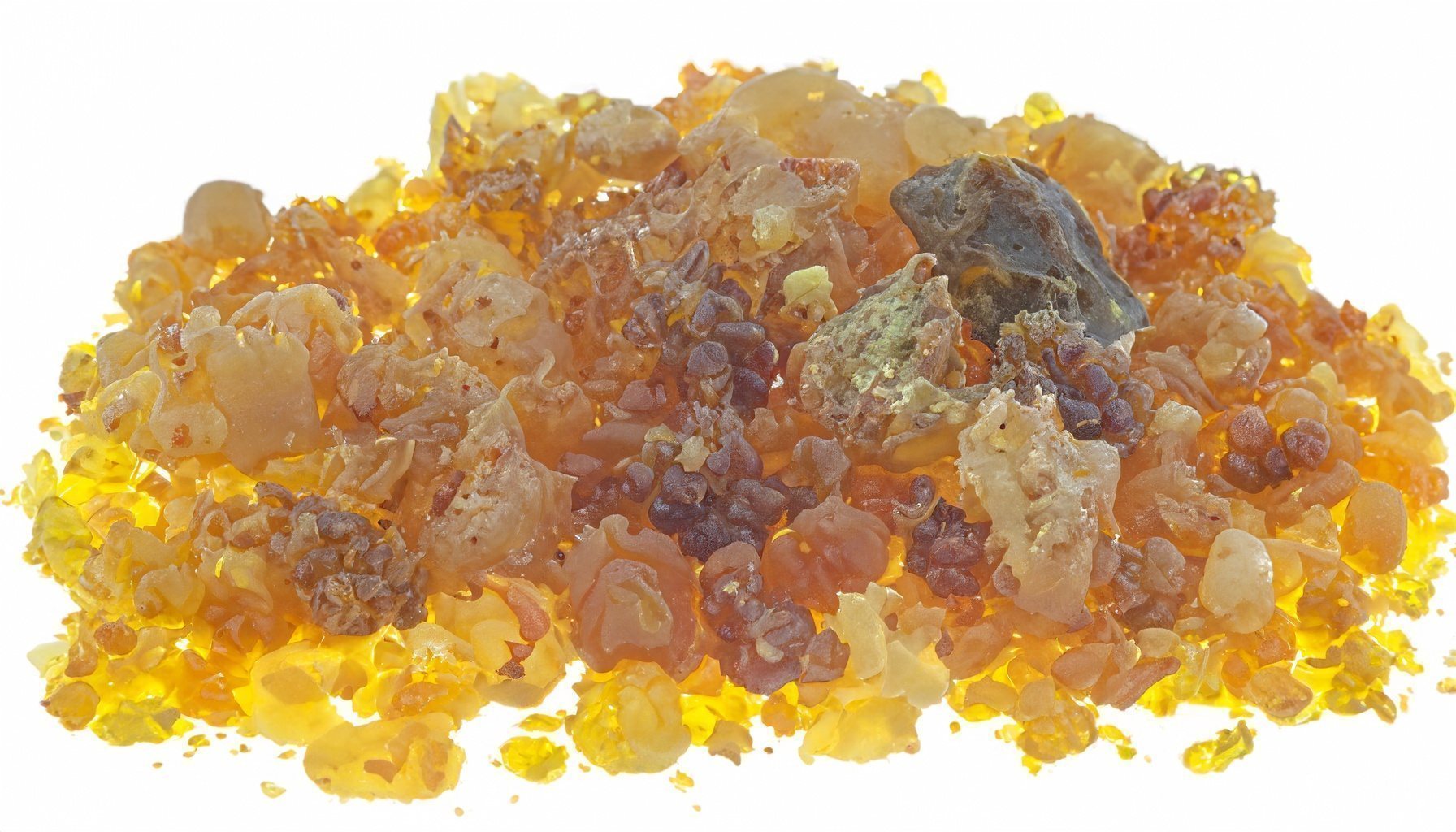
Myrrh, a mystical resin cherished for its aromatic, medicinal, and spiritual attributes, continues to be a subject of fascination in contemporary times. This guide unravels myrrh, exploring its varied uses, benefits, and precautions.
See also: 12 Iconic Natural Aromatics, History of Frankincense & Myrrh
Myrrh is a natural gum or resin extracted from a number of small, thorny tree species of the genus Commiphora. It’s often used in perfumes, incense, and medicine and has been a valued product for thousands of years.
Myrrh is harvested by making incisions into the bark of the trees. The gum resin seeps out and hardens into beads or “tears.” These are then collected for various uses.
Myrrh has anti-inflammatory, analgesic, and antimicrobial properties. It’s often used in traditional medicine for treating wounds, infections, and inflammation, although scientific evidence is limited.
Myrrh essential oil can be diffused in the air using an oil diffuser. It can also be diluted with a carrier oil and applied topically. Be sure to follow the instructions on the label and consult with a professional before use.
Myrrh is generally safe for topical and inhalation use for most people. However, it’s essential to conduct a patch test before applying it to the skin. It’s not recommended for pregnant or breastfeeding women or for ingestion without professional medical advice.
Myrrh is sometimes used in traditional medicine for internal issues. However, it’s potent and should only be ingested under the supervision of a healthcare professional.
Myrrh products, including essential oil and incense, can be purchased online, in health food stores, or stores that specialize in essential oils and natural products.
Myrrh products should be stored in a cool, dry place, away from direct sunlight to preserve their potency and shelf life.
Yes, myrrh is often included in skin care products for its potential benefits in promoting skin health, thanks to its anti-inflammatory and antimicrobial properties. Always conduct a patch test before applying to larger areas of skin.
Myrrh has a warm, earthy, and slightly balsamic aroma. It’s often described as woody and smoky, making it a popular choice in perfumery and incense.
Disclaimer
Always consult with a healthcare professional before using myrrh, especially if you’re pregnant, nursing, have health conditions, or are taking medications. The information provided in this FAQ is for educational purposes and not intended to be a substitute for professional medical advice.
Written by Tony Bierman
Tony Bierman co-founded Candlecopia, a home fragrance company, in 2009. In addition to being a 15-year veteran of the home fragrance industry, Tony is also an author, an award-winning software developer, and an amateur photographer. In his spare time, you’ll find him hiking the woods of Roanoke Creek, with his camera and his dogs.

[…] Like frankincense, myrrh is often associated with ancient religious practices, especially in Christianity and Ancient Egypt. It is known for its antiseptic, anti-inflammatory, and analgesic properties and is used in traditional medicine. See Also: Myrrh: Uses, Benefits, and Safety Guidelines […]
[…] Myrrh – Warm, earthy, and resinous, offers grounding effect. […]
[…] Myrrh: Often used in tandem with frankincense, myrrh has applications in religious rituals and traditional medicine. […]
[…] Myrrh: Has a warm, earthy, and slightly balsamic aroma; often used in incense. […]
[…] Myrrh: A warm, slightly musty scent often associated with spirituality. […]
[…] Myrrh – An ancient scent, rich, and resinous. […]
[…] Myrrh – Rich and luxurious, adds an opulent touch to winter. […]